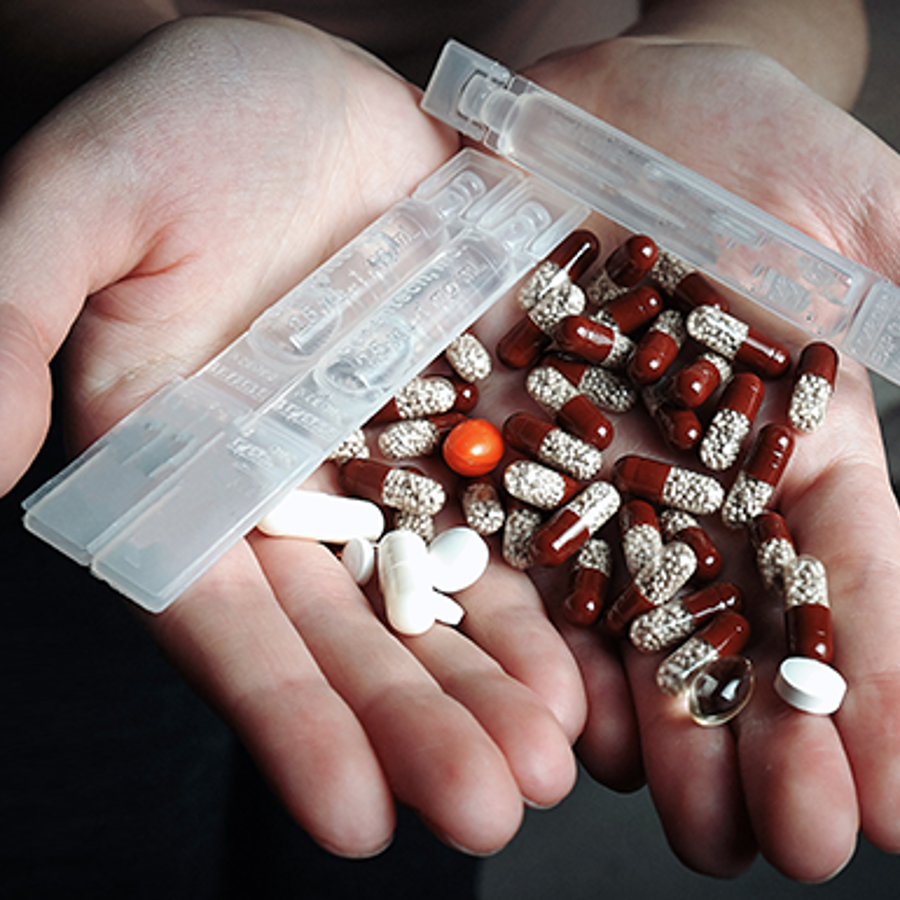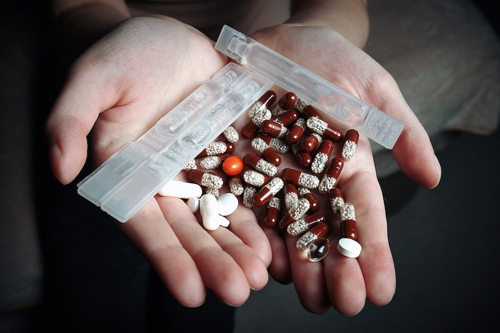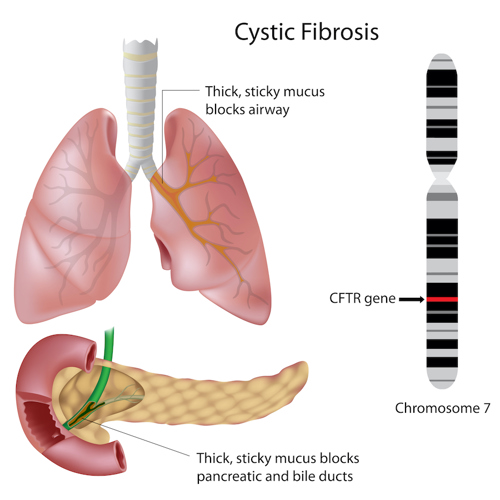
Why do some drugs for cystic fibrosis only work for some patients?
May 17, 2012

- Related Topics:
- Autosomal recessive inheritance,
- Cystic fibrosis,
- Gene expression,
- Gene therapy,
- Genetic conditions
A curious adult from Singapore asks:
"I have heard about a couple of new drugs on the market for cystic fibrosis (like Kalydeco)? Why don't they work for everyone? And which ones work for which mutations?"
Yes! There is a new exciting drug on the market for cystic fibrosis (CF). But like you said, it doesn’t work for everyone.
At first this might seem weird. After all, most cases of CF are caused by glitches in the same gene, CFTR.
Current ways to deal with CF are all pretty much the same too. CF patients are given treatments that break up the mucus in their lungs, deal with the inevitable bacterial infections and so on.
The difference, though, is that the newer treatments try to deal with more than the symptoms. They try to deal with the root cause, the broken gene itself. And this is why they only work for some people’s CF.

See, different people have their CFTR gene broken in different ways. And each broken gene needs to be fixed differently.
Think about it like a car. You wouldn’t fix a car with a dead battery the same way you would one with a flat tire. One needs a jump and the other its tire re-inflated.
The same thing is true for the CFTR gene. Some people need it fixed in one way and others need it fixed in another way.
So this is why these medicines only work for some people with CF. Some patients need their tire re-inflated and others their batteries replaced.
What I’ll do for the rest of the answer is go into a bit of detail about the CFTR gene and its link to CF. At the end, I think you’ll see why the newest treatment for CF, Kalydeco, only works for about 4% of patients.1
Lots of Ways to Break CFTR
Each gene in our body is a long string of three letter “words.” These words form the instructions for making a specific protein. That protein then goes on to do a specific job in the cell.
The CFTR gene is no different. It is a string of 1470 words that form the instructions for making the CFTR protein. This protein works as a channel to let certain things called chloride ions into the cell.
People with CF usually have a glitch in this set of instructions so they make a CFTR that doesn’t work quite right. But as with any set of instructions, there are lots of ways to mess it up.
Sometimes it can be that a single letter gets changed. Or a whole word goes missing. Or a period gets stuck in the middle so that everything else after the period is skipped.
These sound minor but they can have big effects. Imagine the instructions:
- Get one cup of milk, add two teaspoons of chocolate, stir until mixed completely.
Now imagine that the m in milk is changed to an s. Now you have:
- Get one cup of silk, add two teaspoons of chocolate, stir until mixed completely.
Not a tasty glass of chocolate milk anymore! Now, what if the word milk is completely missing? You would have:
- Get one cup of, add two teaspoons of chocolate, stir until mixed completely.
These instructions won’t lead to a glass of chocolate milk (although, in this case, two teaspoons of chocolate alone might not be so bad)!
In another version, a period creeps up right after “of.” Now you have:
- Get one cup of.
Those instructions definitely won’t help someone make a glass of chocolate milk.
Each of those mistakes needs a different fix. One needs the s changed back to an m, one needs the period erased and so on.
All of these kinds of mistakes can happen with CFTR too. And each needs to be fixed in a different way as well.

The most common glitch in CF patients is that word 508 of the CFTR gene is missing. When that word is missing, the wrong kind of protein is built.2
Sometimes a word is misspelled that tells the protein how wide to open. When this happens, the protein can’t do its job.
Sometimes the gene is completely broken and can’t make any protein. One way this can happen is if a period is put in the middle of a sentence, instead of at the end, and the instructions don’t make sense.
Each of these different kinds of broken genes needs something different to fix the problem. One needs the period erased, another needs for the protein to open wider and so on.
Different Problems, Different Remedies
Drugs that are being made to help people with CF only fix some of the types of broken genes. These drugs won’t work on people whose CFTR gene doesn’t work for a different reason.
Kalydeco, the new approved drug, can only help people who make a CFTR protein that can’t open wide enough to do its job.3 This drug wouldn’t work for someone whose CFTR protein gets put in the wrong part of the cell. Or for someone who doesn’t make enough protein. Or any of the other ways things can go wrong.
Another drug called PTC124 won’t work for the people who are helped by Kalydeco. It helps people whose cells stop reading their CFTR genes too soon.4
You can think of these people as having a period in the middle of an important sentence. PTC124 is built like an eraser that will get rid of this period so the cell can read the gene to the end.
This drug obviously won’t help people whose CFTR protein won’t open wide enough. It’s like giving someone with a flat tire a new battery.
And it won’t help people whose gene is broken because of a missing word or a misspelling. PTC124 can only be an eraser, not a pencil.

So far, there is no one kind of drug that can fix all of the types of mistakes that can happen in the CFTR gene. But scientists keep trying to find new ways to fix the other kinds of broken CFTR genes.
In the end, we may have a set of medicines that all together can cure most cases of CF. It will just be that no one drug will work in every case.
Read More:
- How is the medicine PTC124 treating cystic fibrosis?
- Mayo Clinic: More information about cystic fibrosis
- NY Times: FDA Approval of Kalydeco
- NIH: Clinical Trials for CF Drugs
- Cystic Fibrosis Foundation: Types of CF Treatments

Author: Jessica Profato
When this answer was published in 2012, Jessica was a student in the Stanford MS Program in Human Genetics and Genetic Counseling. Jessica wrote this answer while participating in the Stanford at The Tech program.
 Skip Navigation
Skip Navigation
